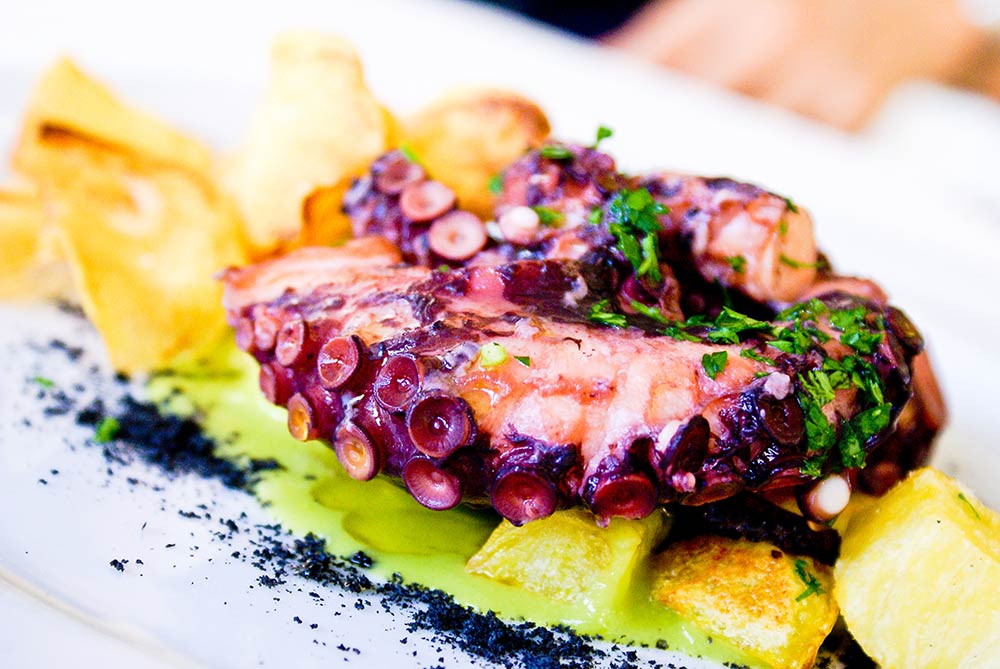Seaganism, seaweed, and celery juice, have been touted as the newest food trends alongside a move to a ‘simpler’ life of home cooking and less materialism.
That’s according to an annual trends report put together by upmarket retailer Waitrose, which commissioned a survey of 2,000 people, not just Waitrose customers, by research company OnePoll.
‘Ingredients from the sea’ was a common theme for the year, including interest in a wide range of seaweeds, including kelp, algae, samphire, nori and aonori.
‘Seaganism’ (a vegan diet that includes sustainable seafood) also ranked in the top 10 list of trends on the up, alongside tahini, a paste made from hulled sesame seeds and used in houmous, and more unusual grains, including amaranth, quinoa, chickpeas and bulgar wheat.
Seacuterie was spotted as a new trend on menus, as a ‘reimagining of charcuturie’, using techniques such as pickling, fermenting, smoking and ageing, which began in Australia and is beginning to be used in London restaurants.

Social media fad celery juice also made it onto the list, which made headlines earlier this year after influencer Medical Medium (real name Antony William) was criticised for publishing fake health claims.
In drinks, ‘anything pink’, English orange wine (made using grapes with their skin on), and Eastern European wines were all trending in the last year.
Alongside individual products, the report tracks longer-term attitude changes to buying.
A third of those asked said eating less meat and fish than two years ago, and a further third said they had plans to reduce. More than a quarter said they plan to look for better quality meat or fish while limiting how often they buy it, with sourcing, provenance and welfare standards influencing choices.
Almost half (four in 10) of those asked said they believe they’ve become less materialistic over the past decade, while six in ten said that sharing memorable experiences with loved ones is their priority.
“As well as home cooking, we’re home growing, as this trend goes hand in hand with an increase in the number of people growing their own fruit and veg,” said managing director of Waitrose, Rob Collins, in an opening statement to the report.
“Underpinning all this is the sense that life’s pendulum is swinging away from materialism and towards a desire for people to share memorable experiences with loved ones. Taken together, these things point to a rise in compassion and simplicity in British lifestyles.”















Seafood is not part of a vegan diet. Just another attempt at infiltrating a growing vegan trend.
Most pescatarians eat eggs and dairy, so although a trendy term maybe it will be handy for those who can’t eat dairy but can eat fish.
So you might as well include everything else. There are other aspects to this such as cruelty and speciesism. Seafood undergoes the most dreadful and agonising, not to mention very slow death. Lobsters for instance can live to be well over 100yrs old, are very intelligent and care about each other. They live in families and take their children for walks. In short they are no different to us. Unfortunately, if you want to eat them, you have to ignore all this and pretend they are no more important than a vegetable, and that is the status they have.